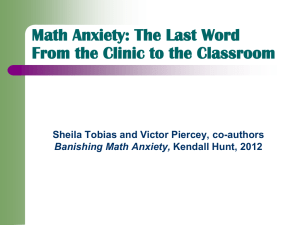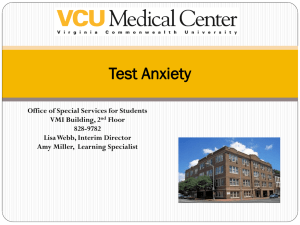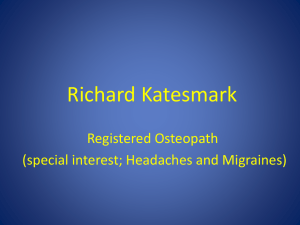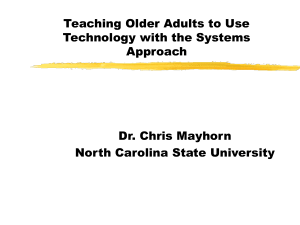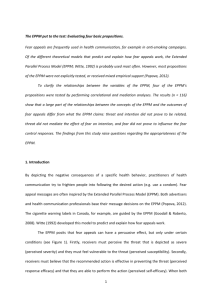Ph.D. Student : Randi Bilberg Enrolment : 1 March 2010 Project Title
advertisement
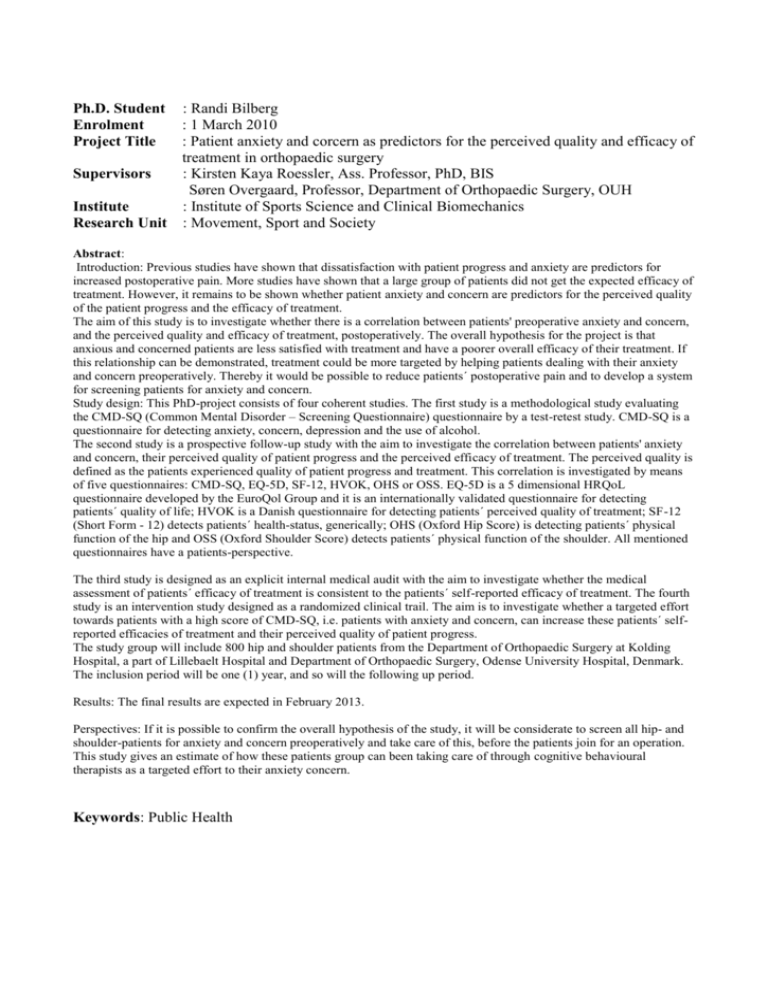
Ph.D. Student Enrolment Project Title : Randi Bilberg : 1 March 2010 : Patient anxiety and corcern as predictors for the perceived quality and efficacy of treatment in orthopaedic surgery Supervisors : Kirsten Kaya Roessler, Ass. Professor, PhD, BIS Søren Overgaard, Professor, Department of Orthopaedic Surgery, OUH Institute : Institute of Sports Science and Clinical Biomechanics Research Unit : Movement, Sport and Society Abstract: Introduction: Previous studies have shown that dissatisfaction with patient progress and anxiety are predictors for increased postoperative pain. More studies have shown that a large group of patients did not get the expected efficacy of treatment. However, it remains to be shown whether patient anxiety and concern are predictors for the perceived quality of the patient progress and the efficacy of treatment. The aim of this study is to investigate whether there is a correlation between patients' preoperative anxiety and concern, and the perceived quality and efficacy of treatment, postoperatively. The overall hypothesis for the project is that anxious and concerned patients are less satisfied with treatment and have a poorer overall efficacy of their treatment. If this relationship can be demonstrated, treatment could be more targeted by helping patients dealing with their anxiety and concern preoperatively. Thereby it would be possible to reduce patients´ postoperative pain and to develop a system for screening patients for anxiety and concern. Study design: This PhD-project consists of four coherent studies. The first study is a methodological study evaluating the CMD-SQ (Common Mental Disorder – Screening Questionnaire) questionnaire by a test-retest study. CMD-SQ is a questionnaire for detecting anxiety, concern, depression and the use of alcohol. The second study is a prospective follow-up study with the aim to investigate the correlation between patients' anxiety and concern, their perceived quality of patient progress and the perceived efficacy of treatment. The perceived quality is defined as the patients experienced quality of patient progress and treatment. This correlation is investigated by means of five questionnaires: CMD-SQ, EQ-5D, SF-12, HVOK, OHS or OSS. EQ-5D is a 5 dimensional HRQoL questionnaire developed by the EuroQol Group and it is an internationally validated questionnaire for detecting patients´ quality of life; HVOK is a Danish questionnaire for detecting patients´ perceived quality of treatment; SF-12 (Short Form - 12) detects patients´ health-status, generically; OHS (Oxford Hip Score) is detecting patients´ physical function of the hip and OSS (Oxford Shoulder Score) detects patients´ physical function of the shoulder. All mentioned questionnaires have a patients-perspective. The third study is designed as an explicit internal medical audit with the aim to investigate whether the medical assessment of patients´ efficacy of treatment is consistent to the patients´ self-reported efficacy of treatment. The fourth study is an intervention study designed as a randomized clinical trail. The aim is to investigate whether a targeted effort towards patients with a high score of CMD-SQ, i.e. patients with anxiety and concern, can increase these patients´ selfreported efficacies of treatment and their perceived quality of patient progress. The study group will include 800 hip and shoulder patients from the Department of Orthopaedic Surgery at Kolding Hospital, a part of Lillebaelt Hospital and Department of Orthopaedic Surgery, Odense University Hospital, Denmark. The inclusion period will be one (1) year, and so will the following up period. Results: The final results are expected in February 2013. Perspectives: If it is possible to confirm the overall hypothesis of the study, it will be considerate to screen all hip- and shoulder-patients for anxiety and concern preoperatively and take care of this, before the patients join for an operation. This study gives an estimate of how these patients group can been taking care of through cognitive behavioural therapists as a targeted effort to their anxiety concern. Keywords: Public Health



